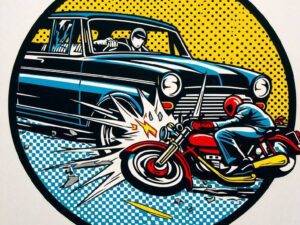Which car modifications are legal in the UK?
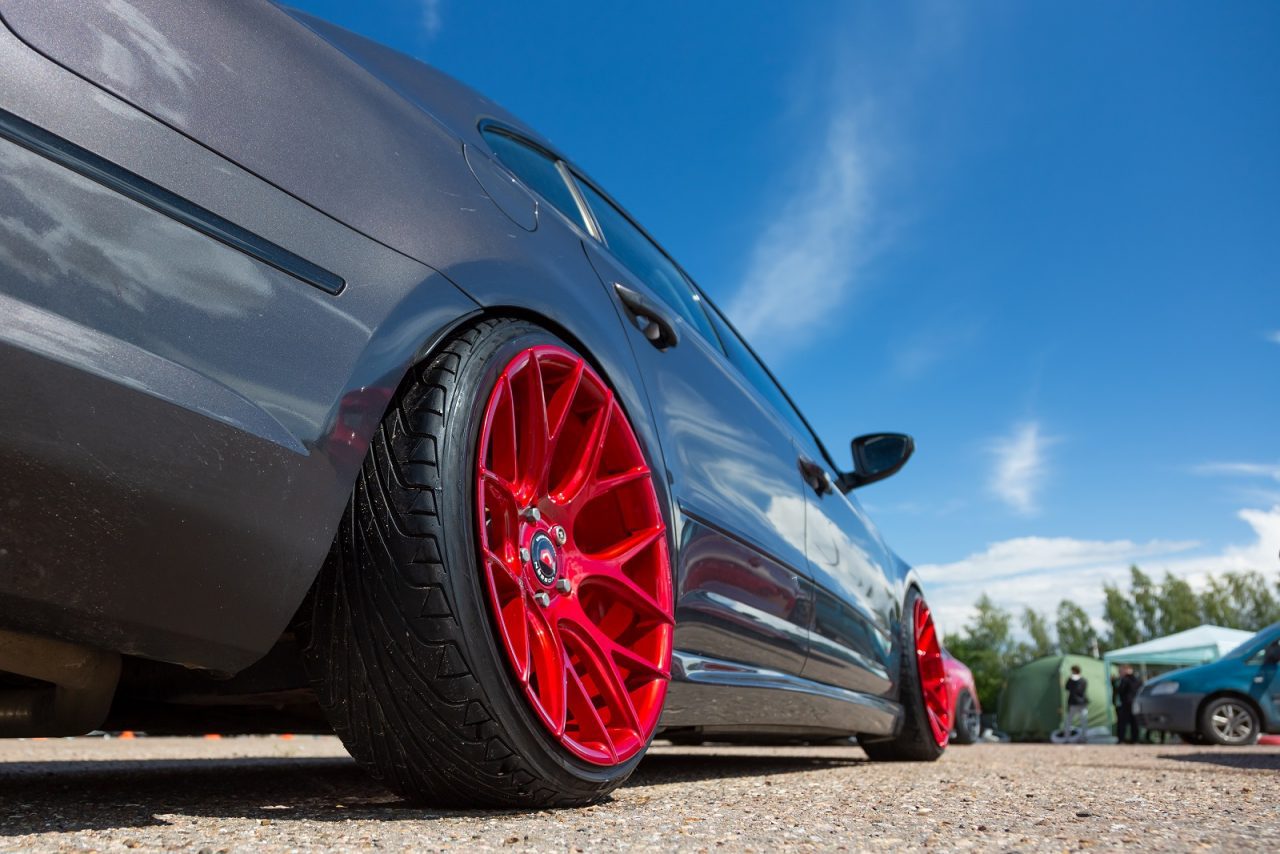
If you’re thinking of modifying your car – perhaps with a new exhaust or tinted windows – you’ll want to be confident the modifications you choose are going to be safe and legal. But when we surveyed the public on car modifications, we realised there’s still a lot of confusion around which mods are legal and which aren’t.
Here the modified and custom car experts at Adrian Flux shed some light on car modifications, identifying which ones are legal and which may land you in trouble with the police.
What are car modifications?
Modifications are alterations, new equipment and fittings that change the specification of a car from what was originally fitted by the manufacturer. Most people modify their cars to improve the way they look, but some modifications – such as upgraded brakes or ECU chipping – are designed to improve the vehicle’s performance and handling. Read our blog to find out more about car modifications in 2022.
Which car modifications are legal?
There are a lot of rules governing the changes you can legally make to a car in the UK, so you should research the adaptations you are planning to make to ensure your car remains road legal. Note that any obvious car modification could attract extra attention from the police, so you might have to expect more frequent inconvenient stops.
Before you start, make sure to read our blog on how to avoid common dangers and pitfalls involved with modifying your car.
Here, we’ve explored the legality of some of the most common car modifications.
Alloy wheels
Alloy wheels are the most popular car modification and probably the easiest job to do. Alloys are perfectly legal.
Read our blog to learn about the top 10 car modifications to personalise your wheels.
Engine swapping
This is when you replace a car’s original engine with another, mainly for performance reasons or to get an old car back on the road when its engine has failed.
There are two types of engine swap: a like-for-like exchange where the replacement engine is built to fit in a certain car, and a non-factory-specific swap which will mean you need to make modifications to get the new engine to fit and work.
An engine swap is legal, but you will need to let your insurer and the DVSA know.
Tinted windows
It’s perfectly legal to modify your car with tinted windows. Many cars have tints as standard, so they can be a nice addition – provided they aren’t too dark and they’re not added to the wrong windows.
There are restrictions on the type of tints you can legally add to the front windows and windscreen. A minimum of 70% light must be able to get through the front windows, and this rises to 75% for the windscreen.
This law is in place to maintain visibility and ensure your view isn’t obscured. There are no restrictions on the tinting of rear windows.
When buying window tints, make sure they’re from a reputable dealer and are legal for the windows you want to tint.
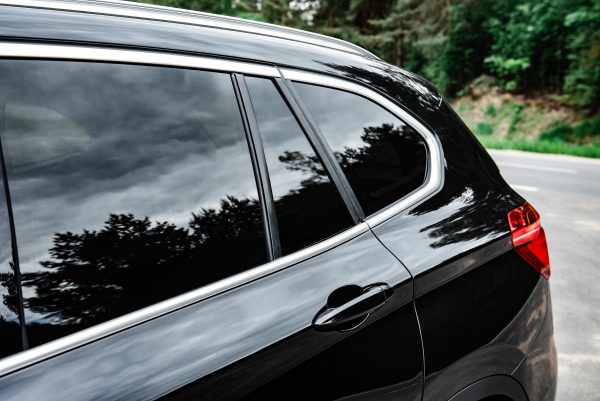
Disability adaptations
Some people need to modify their cars to help them drive because they have a disability or someone with a disability needs to be carried as a passenger.
Disability adaptations are perfectly legal. Read our blog to find out about car modifications for disabled drivers through the ages.
Air filters
People looking to get more power out of their car’s engine often upgrade their air filter. It’s a fairly simple mod that usually only takes a couple of minutes and you will see an instant improvement in performance.
This is because aftermarket filters are usually larger than factory fitted ones so they increase the airflow into the engine and increase power delivery.
The replacement air filter may be a little more noisy but it is quite legal, unless it is so noisy that it’s deemed a nuisance.
Non-standard paintwork
A respray is a quick way to customise a vehicle. An alternative is car wrapping, which is a printed vinyl film applied to the surface of the car. You can respray or wrap your car legally, but if you change the colour from that which is recorded on your V5C logbook, you will have to notify the DVLA as well as your insurer.
Lowered suspension
You won’t be breaking the law if your car’s suspension is lowered properly. However, if changes to the suspension aren’t done properly, your car could fail its MOT. Ensure the work is done by a professional. If you’re doing the work yourself, get a professional to check it on completion.
A car sitting closer to the ground will have other implications for you and your car, which may impact the way you drive:
Reduced ground clearance – speed bumps, potholes and kerbs can become an issue if you lower the suspension.
Altered car handling – dropping the suspension affects how the car handles, so you may need to adjust your driving style.
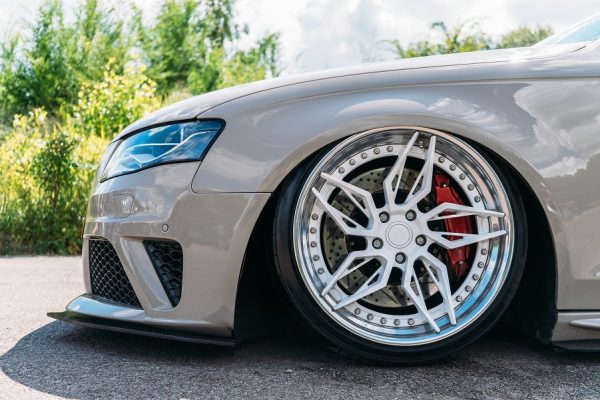
Exhaust modifications
Large bore exhausts are designed and fitted to make a car louder so it sounds like it has a high-performance engine. The laws around exhaust modifications are complicated as they depend on your vehicle category. As a general rule, most exhaust modifications are legal as long as they don’t make the vehicle louder than its type approval allows.
Drivers who don’t comply with these rules can receive an on-the-spot fine of £50 and an official order to remove it. If you don’t comply, the penalties can increase rapidly.
Sound system upgrades
Many young drivers add upgraded sound systems to their cars, with boot space being sacrificed to house subwoofers and other equipment.
It’s not illegal to add aftermarket sound systems to your car, but you could be in trouble if someone complains that your loud music is a public nuisance. The police can seize any vehicle causing a noise-related public disturbance.
Spoilers
Spoilers are available for most types of cars and are designed to give a sporty look while, in theory, improving the car’s handling and performance.
It isn’t illegal to mount a spoiler on your car, but there are conditions. The spoiler needs to be securely fixed, with no sharp or dangerous edges exposed and it shouldn’t obscure your rear view.
The police have the right to order you to remove a spoiler if they think it might be dangerous.
Neon lights
It is legal to add neon lights to the bottom of a car provided they’re only used while parked, perhaps at a car show. However, the neon tubing must not be visible. In normal driving conditions, neon lights are illegal.
Nitrous oxide conversion
The use of nitrous oxide is not illegal but it can be dangerous. Adding nitrous oxide to your engine increases acceleration but it also increases cylinder pressure. If the engine can’t handle the increased stress, it may be damaged.
The engine can also be damaged when there’s too much oxygen and not enough fuel in the engine. The incorrect ratio and added cylinder pressure could cause the engine to explode.
LPG conversions
LPG is liquefied petroleum gas and is a versatile low-carbon fuel that can be used to power the engine of most cars. You will have to fit a conversion kit which will turn your vehicle into a ‘dual-fuel car’ that can run on LPG and petrol.
The LPG conversion is legal and it could save you a lot of money with ever-escalating costs of diesel and petrol.
Can you legally modify a car bought with a PCP or on finance?
Around 8 out of 10 new cars are bought on finance, and most of these are bought through a personal contract purchase (PCP).
With a PCP contract, you don’t own the car, so making significant changes will put you in breach of your contract. In some cases, finance companies may seek to reacquire the car early if the modifications have altered the retail price.
If you want to modify a car bought on finance, you will need to get written permission from the finance provider. Changes can be made, but not beyond those permitted by the finance company.
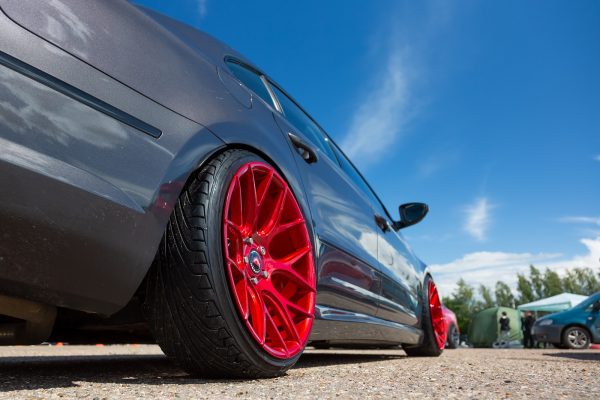
Where can I find sensible insurance for my modified car?
Adrian Flux is a specialist modified car insurance broker that takes pride in insuring the “uninsurable”. We realise that if you’ve spent time and money modifying your wheels, you’re probably going to take extra special care of it, making you less of a risk so your mods won’t necessarily impact the cost of your insurance. In some cases, they could even lower your premiums. This is often the case when you fit a dashcam, a towbar, or parking sensors.
Find out more about the huge car insurance savings that can be made by declaring modifications on your car.
For a swift and sensible quote call 0333 300 4445. 79.5% of all customers receiving an online quote in July 2020 could have obtained a cheaper quote over the phone, based on the information they provided.
You can also book a callback to talk to one of our modified car insurance experts at a time that suits you.

